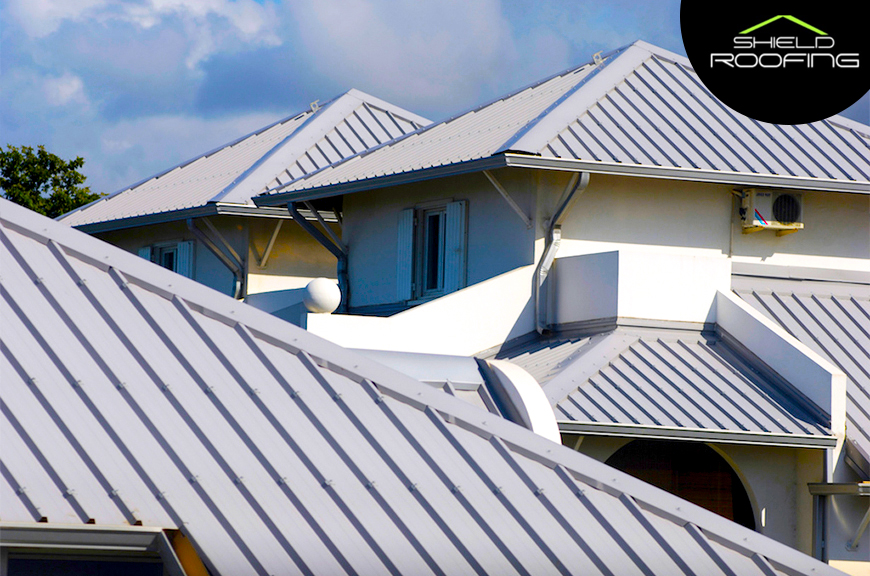What is the best roofing felt?
Several components must be considered when roofing a home or business to create a lasting, weather-resistant structure. One of the most important components is roofing felt. Roofing felt is a type of underlayment that is installed between the roof deck and the shingles. There are different types of roofing felt, each with advantages and disadvantages.
At Shield Roofing, we pride ourselves as a leading San Antonio roofer that can help you select the best roofing felt for your home or business. We have over 25 years of experience in the roofing industry. Our team of professional roofing companies in San Antonio has installed all types of roofs in various climates.
How do you identify the proper roofing felt for your home?
Before deciding on the proper roofing felt, it is essential to identify your needs. Consider the climate in your area and the type of roof you have. If you live in a room with severe weather conditions, you will need more robust roofing felt to withstand high winds and heavy rains.
There are two types of roofing felt rated for high wind resistance: Type I and Type II. Type I roofing felt is made from asphalt-saturated organic materials. This type of roofing felt is usually used on sloped roofs. Type II roofing felt is made from glass-fiber matting coated with asphalt. This type of roofing felt is often used on flat roofs. Here are the other different types of roofing felt;

Torch-on roofing felt
Asphalt-coated fiberglass mat roofing felt
This type of roofing felt is made from glass-fiber matting coated with asphalt. The matting is then soaked in hot tar or pitch and left to cool. This type of roofing felt is often used on sloped roofs.
Polyester mat roofing felt
This type of roofing felt is made from polyester fibers coated with asphalt. The matting is then soaked in hot tar or pitch and left to cool. This type of roofing felt is often used on sloped roofs.
Urea-formaldehyde resin roofing felt
This type of roofing felt is made from urea-formaldehyde resin mixed with asbestos fibers. The mixture is then coated with asphalt and left to cool. This type of roofing felt is often used on flat roofs.
EPDM rubber roofing felt
This type of roofing felt is made from ethylene propylene diene monomer rubber coated with asphalt. The EPDM rubber is then vulcanized or cured with heat and pressure. This type of roofing felt is often used on flat roofs.
PVC roofing felt
This type of roofing felt is made from polyvinyl chloride coated with asphalt. The PVC is then vulcanized or cured with heat and pressure. This type of roofing felt is often used on sloped roofs.
How to install roofing felt?
The process of installing the roofing felt is relatively simple. However, it is important to follow the manufacturer’s instructions carefully to ensure a proper installation.
First, the roof deck must be clean and dry. Any loose nails or debris should be removed from the surface. Next, a layer of roofing felt is spread over the surface of the roof deck. The felt is then secured in place with nails or staples.
Once the roofing felt is in place, the shingles can be installed. It is crucial to make sure that the shingles overlap the roofing edges felt by at least two inches. This will help to protect the felt from wind and water damage.
If you are unsure about how to install roofing felt, it is always best to consult a professional roofer. They will be able to help you select the best type of roofing felt for your home and provide guidance on the installation process.
What are the benefits of using roofing felt?
Roofing felt offers several benefits, including:
- Protection from the elements: Roofing felt protects your roof from wind, rain, snow, and ice.
- Increased lifespan of your roof: Roofing felt helps prolong your roof’s life by protecting it from the elements.
- Roved energy efficiency: Roofing felt helps keep your home or business cooler in the summer and warmer in the winter. This is because roofing felt acts as a barrier between your home and the outside temperature.
- Reduced noise: Roofing felt absorbs sound, which can help to reduce noise pollution in your home or business.
If you are looking for a professional roofer in San Antonio, look no further than Shield Roofing. We are a leading provider of roofing services in San Antonio and the surrounding areas. Contact us today to schedule a free consultation. Our experts will be happy to help you choose the proper roofing felt for your home and business.
